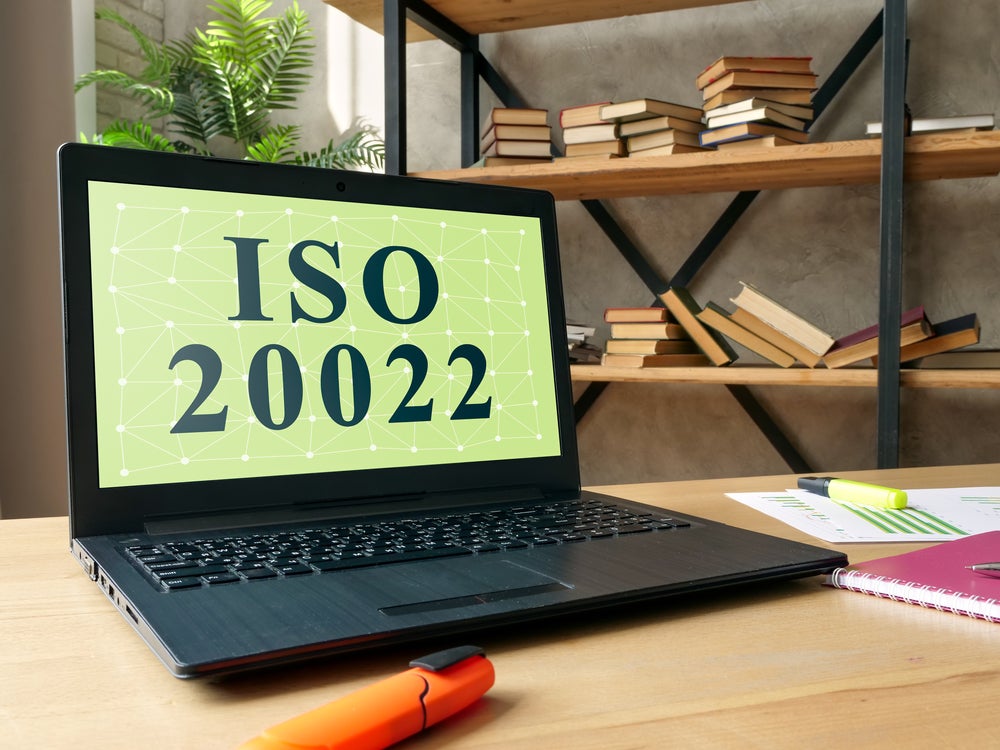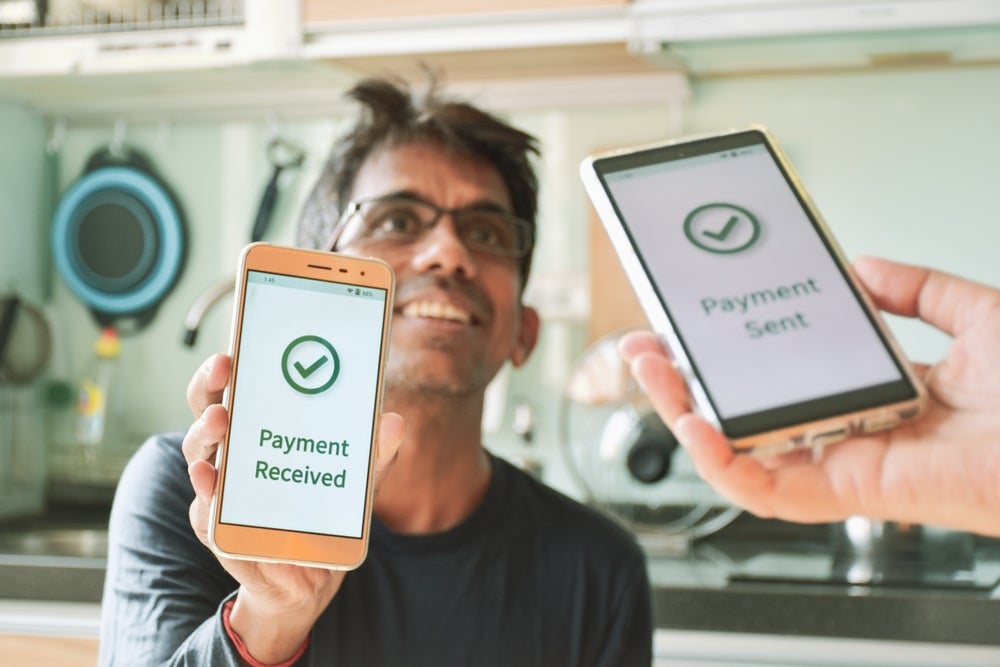Having just completed the migration to EMV, Nigeria
stands at the forefront of Africa’s burgeoning cards and payments
industry. Issuers in the country are now trying to capitalise on
technology innovation by rolling out increasingly sophisticated
offerings and embarking on intensive consumer education, as
Victoria Conroy reports.
 In a cash-dominated country where only around 18 million of
In a cash-dominated country where only around 18 million of
the 146 million-strong population are classed as banked, and where
payment infrastructure is sparse, it would be easy to assume that
promoting cards and electronic payments would be an uphill
struggle.
However, Nigeria stands out as a market that offers fertile growth
opportunities for payment players, thanks to a combination of
intense government efforts to reduce cash usage, and financial
services providers who are utilising the latest technology
innovations to reach out to previously hard-to-reach
consumers.
Although cards are being enthusiastically promoted and adopted
(with staggering growth rates to match), Nigeria’s banks are also
finding that mobile phones are in many cases an ideal tool to
extend financial services of all kinds, and also a convenient and
cost-effective way of overcoming the shortage of ATM and POS
locations to provide branchless banking.
However, the issue of reaching out to the unbanked is still a major
challenge in a country where it is estimated by Nigerian industry
body Enhancing Financial Innovation and Access (EFinA) that around
64 million adult Nigerians (or 74 percent of the adult population)
have never had a bank account.
Around 85 percent of women and 86 percent of the rural population
are unbanked. Of the 18 million that are classed as banked, around
half are between the ages of 25 and 44, with 18 percent of those
aged between 18 to 24 currently banked.
How well do you really know your competitors?
Access the most comprehensive Company Profiles on the market, powered by GlobalData. Save hours of research. Gain competitive edge.

Thank you!
Your download email will arrive shortly
Not ready to buy yet? Download a free sample
We are confident about the unique quality of our Company Profiles. However, we want you to make the most beneficial decision for your business, so we offer a free sample that you can download by submitting the below form
By GlobalDataOf the adult population, 63 percent have never heard of ATMs, and
although Nigeria has a mobile phone user base of 56.9 million as of
2008, 60 percent of mobile phone users are unbanked. But the number
of those classed as banked is increasing every year as the
country’s oil and agriculture resources have helped to spur the
economy and propel a growing number of people into the realms of
the emerging middle class.
In stark contrast to much of the world, Nigeria has maintained a
constant GDP growth rate over the last five years, with the 2008
figure a respectable 6.8 percent despite global economic
turbulence.
This has helped to propel a greater number of people into the
emerging middle class segment, and has also reduced the amount of
cash usage – figures from the Central Bank of Nigeria show that the
ratio of currency outside banks to broad money supply (also known
as the intermediation efficiency indicator) declined slightly to
9.7 percent in 2008 compared to 12.7 percent in 2007, reflecting
increasing usage of electronic payment, most notably ATM
transactions.
Nigeria’s government has embarked upon a strategic plan to grow its
economy to be among the 20 largest economies in the world by the
year 2020, under a project titled Financial System Strategy 2020.
One of the objectives of this plan is for electronic payments to
form the bedrock of all financial transactions.
One of the first steps of the 2020 strategy is that by the end of
2009, all businesses with more than 50 employees will be required
to make salary payments via direct deposit into a bank account,
which will significantly reduce the number of unbanked people, and
lead to greater debit card usage.
In tandem, the deployment of ATM and POS terminals is expected to
accelerate the adoption of bulk salary payments by many public and
private sector institutions.
Electronic payment trends
 There are just 10,500 POS
There are just 10,500 POS
terminals and 8,500 ATMs in Nigeria, but their rapid proliferation
is helping to drive stellar growth rates for all forms of
electronic payment.
As of the end of 2008 there were around 28 million payment cards in
issue in Nigeria, with 27.7 million being debit cards. Card usage
continues to gain significant traction, with the volume and value
of transactions in 2008 standing at 66.1 million and NGN441.6
billion ($2.8 billion), or a rise of 273 percent and 196.9 percent
respectively compared to 2007.
It is ATM transactions that comprise the overwhelming majority of
e-payments in Nigeria, representing 90.5 percent of all e-payment
transactions in terms of value and 91 percent in terms of volume.
Another factor driving ATM transactions is that several banks in
Nigeria have reduced the amount that customers can withdraw over
the bank branch counter to a maximum of NGN60,000 ($389), which is
forcing customers to use ATMs with greater frequency.
POS payments are gradually increasing, accounting for 3.7 percent
of e-payments in terms of value in 2008, and 1.8 percent in terms
of volume.
POS transactions, although miniscule in numbers compared to other
channels, are showing impressive growth rates due to an increasing
number of merchants joining the POS network and consumers using the
POS for a variety of services – such as lottery ticket purchases,
bill payments, funds transfers and mobile phone top-ups among
others.
In 2008, 1.2 million POS transactions were conducted for a value of
NGN16.1 billion, rising by 183.1 percent and 150.2 percent
respectively compared to 2007.
Many banks and non-banks are also focusing on delivering banking
services through lower-cost established delivery channels like
mobile phones.
According to the Central Bank of Nigeria, mobile payments accounted
for 0.2 percent in value and 4.8 percent in volume of all
electronic payment transactions in 2008. The number and value of
payments through mobile phones in 2008 stood at 3.2 million and
NGN697.8 million, up by 378.1 percent and 630.3 percent from
2007.
Internet transactions have also enjoyed a surge in popularity,
growing in volume and value terms by 77.3 percent and 135.8 percent
to 1.6 million transactions worth NGN25 billion.
Credit card trends
Credit cards were first introduced into Nigeria in 2004 but are
mostly out of reach for the majority of Nigerian consumers, given
that banks in the country have stringent account opening
requirements. Existing bank customers typically have to provide
employment and salary confirmation, while non-bank customers
require additional items such as utility bills and 3 months’ worth
of bank statements.
Additionally, most credit cards are actually secured credit cards
requiring the cardholder to provide collateral against the card,
typically around 120 percent of the credit limit, although
revolving cards are beginning to increase in numbers.
It is estimated that there are around 300,000 credit cards in issue
in Nigeria, although there is no data available on how many are
classed as revolving. For those that are approved to get credit
cards, minimum repayment requirements on revolving balances vary,
but tend to be between the 15 to 30 percent range.
Currently, annual fees typically hover around the NGN30 to NGN50
range for classic cards, and upwards of NGN100 for gold and
platinum cards, whereas a few years ago annual fees were not much
more than NGN10 on average.
Some banks also charge monthly service fees, in some cases as much
as NGN500 per month.
The vast majority of cards in Nigeria are denominated in US
dollars, although the past couple of years have seen the
introduction of NGN-denominated cards and dual currency cards.
Foreign currency-denominated cards have been driven by the presence
of Visa and MasterCard in the country, with these cards used
predominantly by affluent consumers or those who travel
internationally.
The volume and value of dollar-denominated card transactions rose
significantly in 2008, jumping by 110.3 percent and 85.5 percent
respectively to 490,445 and $117.9 million compared to 2007.
EMV migration
Nigeria has a reputation for financial fraud, and in response to a
rise in fraudulent ATM transactions, the Central Bank of Nigeria in
2005 issued a mandate that all banks should migrate to EMV
technology by 2008.
Despite a few delays, Nigeria’s banking industry completed the
migration in July 2009. However, there appears to be a war of words
between two major card networks, InterSwitch and Valucard, over
their respective chip and PIN solutions.
InterSwitch, the sole bank switching company in Nigeria, has
developed and rolled out Verve cards incorporating chip and PIN
technology in conjunction with several Nigerian banks, with around
six million Verve cards already issued.
However, Valucard, which is affiliated with Visa, has decried
InterSwitch’s technology as not being a true EMV solution, with
Valucard claiming that its Visa-branded EMV-enabled cards are the
only EMV-compliant cards in the marketplace as they are certified
by global EMV standard organisation EMVCo.
InterSwitch was quick to respond, saying that the Verve chip is a
MasterCard EMV-compliant chip that offers extra functionality such
as a loyalty programme and fraud monitoring via cardholders’ mobile
phones. However, InterSwitch said that it had decided not to use
the MasterCard brand on the Verve card, instead choosing to promote
it as a pan-African EMV solution.
Although Nigeria’s EMV migration is good news for cardholders, the
country’s propensity for financial skulduggery has led to many
global online and bricks-and-mortar merchants refusing to accept
card payments from Nigerian-issued cards.
It remains to be seen how the international card schemes and
Nigerian government or industry bodies will approach this issue,
which is causing increasing consternation among Nigerian credit
cardholders and flies in the face of the 2020 strategy.
Visa’s online card authentication service, Verified by Visa, and
MasterCard’s SecureCode have also been implemented by all Visa and
MasterCard issuers in the country, further reducing the risk of
fraud.
|
Nigeria |
||||||
|
E-payment transaction market share |
||||||
|
2006 |
2007 |
2008 |
2006 |
2007 |
2008 |
|
|
Volume (%) |
Value (%) |
|||||
|
ATM |
93.1 |
88.9 |
91 |
73.3 |
88.5 |
90.5 |
|
Internet |
1.7 |
5.1 |
2.4 |
3.5 |
7.1 |
5.7 |
|
POS |
4.8 |
2.4 |
1.8 |
23 |
4.3 |
3.7 |
|
Mobile |
0.3 |
3.8 |
4.8 |
0.1 |
0.1 |
0.2 |
|
Source: CI, Central Bank of |
||||||
Issuers
United Bank for Africa (UBA)
As of 2008, UBA had over 8.4 million debit cards in issue,
including a Visa V Pay debit card and its own-branded UBA debit
card, as well as 54,000 credit cards.
The bank also offers a MasterCard-branded dollar-denominated credit
card in standard and corporate formats, along with a prepaid
MasterCard.
In June 2008, UBA launched a Visa-branded dual currency chip and
PIN debit card, which can be used for NGN, US dollar and other
international currency transactions. It also incorporates a credit
line that customers can apply for to access UBA loan
facilities.
Intercontinental Bank
Intercontinental Bank currently issues four payment cards – its
own-branded prepaid ‘CashCard’; the ‘e-TRANSACT’ card which, along
with payments, enables access to mobile banking, phone top-ups,
interbank transfers and ATM withdrawals in Nigeria and Ghana; a
MasterCard-branded credit card; and the Verve card, a chip and
PIN-enabled debit card linked to the cardholder’s current
account.
Intercontinental also offers Verve reloadable prepaid and gift
cards. In its 2008 annual report, Intercontinental’s ATM network
had expanded to 677, representing 15 percent of ATMs in Nigeria.
Intercontinental also enhanced its ATM network with MasterCard
acceptance.
Zenith Bank
Zenith offers Visa and MasterCard credit cards in various formats
which have been overhauled to incorporate EMV technology.
Zenith also offers MasterCard-branded charge cards, and the
‘WebSurfer’ card, a MasterCard-branded virtual prepaid card that
can only be used on the internet.
Zenith also carries a Visa-branded dual currency credit card. In
2008 Zenith forged a strategic alliance with German airline
Lufthansa in order to launch a co-branded credit card incorporating
Lufthansa’s loyalty programme.
Diamond Bank
In January 2009, Diamond Bank launched a range of Visa-branded
EMV-enabled credit cards in classic, gold and platinum
formats.
The cards are denominated in NGN, unlike many other credit cards in
the country, meaning that Nigerian cardholders travelling abroad
will be billed in their domestic currency rather than US dollars as
is standard on most Nigerian credit cards.
The cards are also linked to the bank’s Diamond Gems Reward scheme,
with classic cards offering 1 point for every NGN200 spent, gold
cards offering 1 point for every NGN175 spent, and platinum cards
offering 1 point for every NGN150 spent.
Guaranty Trust Bank
As of 2008, GTB had a network of 142 branches and 398 ATMs across
the country, serving 1.34 million retail customers – it plans to
increase its ATM network to 1,000 by 2012, given the strong growth
in ATM transactions it has seen over the past few years.
In the first quarter of 2008, 4.13 million ATM transactions were
conducted with a value of $229 million – by the third quarter of
2008, 5.29 million transactions worth $340 million had been
conducted.
GTB’s retail strategy for growth is focused on servicing Nigeria’s
emerging middle class consumer segment, such as employees of
institutional banking clients.
GTB also issues a V Pay debit card denominated in NGN and a
MasterCard-branded credit card for individuals and businesses that
is dollar-denominated but can be used for purchases in other
currencies.
The credit card can be issued with a minimum opening limit of $100
and comes with an annual fee of $20.
Access Bank
Since October 2007, Access Bank has offered Visa classic, gold and
platinum credit cards, and has issued over 40,000 with a target of
100,000 cardholders by the end of 2009.
In 2009, Access Bank became one of the first banks in the country
to roll out a Visa Infinite ‘Black’ credit card, offered to elite
customers by invitation only.
The card, which has an APR of 29 percent and a minimum $30,000
credit limit, comes with a 24/7 concierge service, travel
insurance, purchase warranties and access to over 600 airport VIP
lounges around the world, along with special offers related to
travel, leisure and events.







